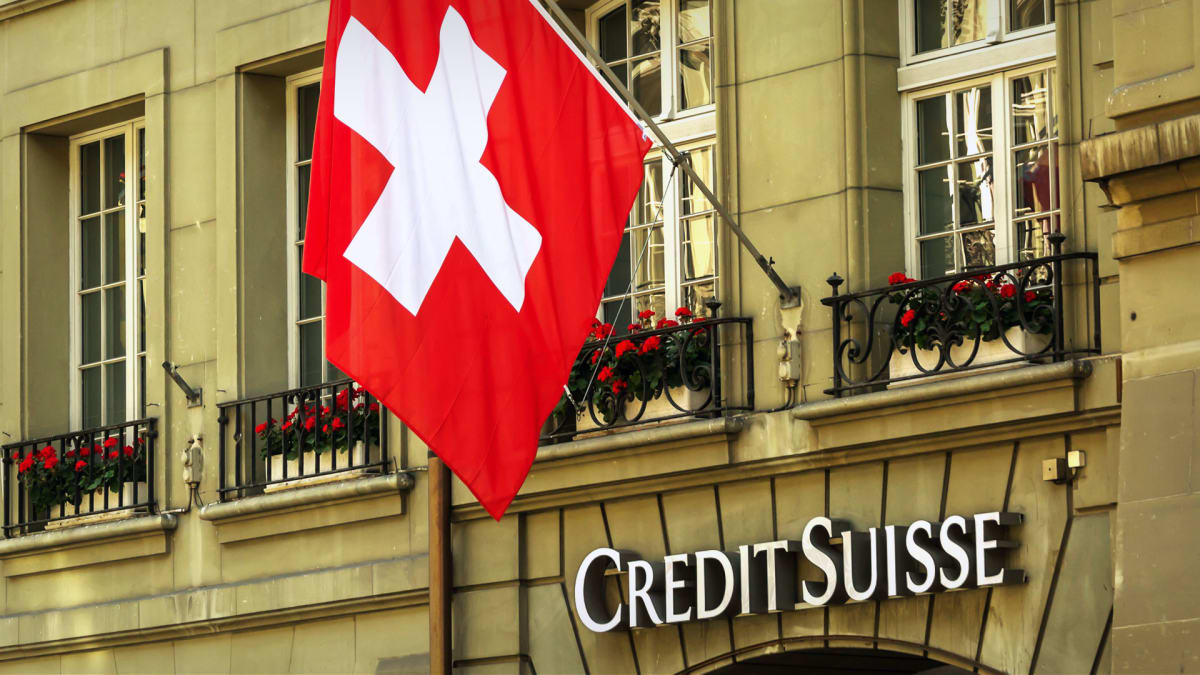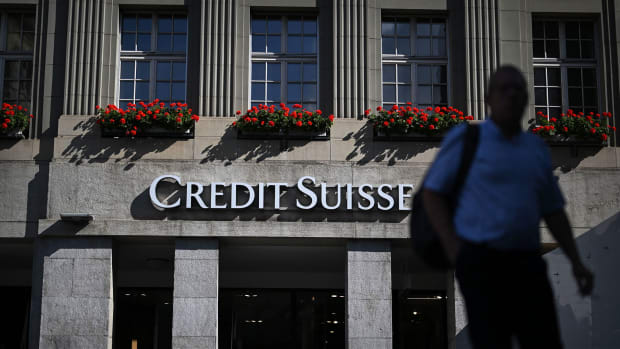
It's a scenario that was unthinkable a few years ago: Credit Suisse selling out to its arch-enemy and compatriot UBS.
But it is now the most plausible scenario to avoid the bankruptcy of the former European banking flagship.
The Swiss government has urged UBS to acquire Credit Suisse (CSGKF) , in an attempt to end the crisis of confidence around the bank, which has been rocked by numerous scandals over the past few years. The government, which provided Credit Suisse a 50 billion Swiss Franc loan (almost $54 billion) to shore up its liquidity this week, is not in a position to intervene further, fearing public backlash in using taxpayer money to bail out the bank.
According to Bloomberg News, the two banks are in talks with the goal of announcing an agreement by the end of the weekend. UBS could buy units of Credit Suisse, including Asset Management and Wealth Management, but investment banking would be sold to other investors or wound down.
The hardest part remains retail banking, which is the division serving Swiss consumers. This unit is the only one to have been profitable last year. If UBS gets its hands on it, there is a big risk that it would create a monopoly, which means that the deal could be blocked by the antitrust authorities. UBS and Credit Suisse are the two largest Swiss universal banks.

FABRICE COFFRINI/AFP via Getty Images
Retail Bank Might Be a Headache
The deal may also come up against the fact that UBS is asking the Swiss government for a backstop. In other words, UBS is asking the Swiss National Bank (SNB), Switzerland's central bank, to provide liquidity in the event that there are problems related to the activities it is buying.
Credit Suisse declined to comment. UBS didn't respond to a request for comment.
The takeover of Credit Suisse by UBS would be a sad end to a bank that was once a juggernaut. It had succeeded in weathering the 2008 financial crisis without losing too many feathers. At the time of that crisis, Credit Suisse shares had certainly fallen, but they were down only to the level of $45, which seemed to be a feat for a bank at the time.
Now Credit Suisse shares trade at $2.01.
It is the result of the repeated scandals, in particular in its investment bank division. These scandals eventually overwhelmed the bank to the point of causing it to lose the confidence of investors.
Credit Suisse is a universal bank, which offers traditional services and products to consumers, mainly in Switzerland. But the establishment is known globally for its investment banking activities - trading, mergers and acquisitions, issuance and underwriting of securities, etc. - and wealth management operations.
Two scandals occurred almost one after the other in 2021, and caused losses of several billion dollars for the bank.
The first was the bankruptcy of Greensill. Founded in 2011. The British company was a supply chain and accounts receivables lender that specialized in lending money to companies so that they could pay their suppliers. It then packaged the debts of these companies into financial securities which it would resell to investors.
The house of cards began to crumble when these investors, including Credit Suisse, had doubts about the real value of the debts and abandoned Greensill, which then filed for bankruptcy in March 2021.
Credit Suisse had invested $10 billion of its clients' funds in Greensill products.
'Status Quo Is No Longer an Option'
The second scandal in the spring of 2021 involved family office Archegos Capital Management. Bill Hwang, a South Korean investor based in New York who founded hedge fund Tiger Asia Management in 2001, suffered a major setback in 2012 because of insider trading allegations. Hwang gradually revived Tiger Asia which became Archegos.
While his company would manage $10 billion, Hwang convinced banks, including Credit Suisse, to lend him $30 billion to invest more. In 2020, he invested heavily in ViacomCBS (VIACA), which saw the value of its shares soar.
At the beginning of 2021, Credit Suisse asked Archegos to deposit funds. Hwang promised to reduce the risks. But in March 2021, ViacomCBS shares crashed and the banks asked Archegos to cover the losses, which it was no longer able to do. As a result, Hwang's company went bankrupt.
To try to revive itself and survive, Credit Suisse announced an emergency plan last October, which included drastic cost reductions, but investors do not seem to believe in the bank's turnaround.
JPMorgan analyst Kian Abouhossein was the first to raise the possibility of a marriage between UBS and Credit Suisse on March 16, when the latter aroused fears among investors worried about the problems of US regional banks after the sudden collapse of Silicon Valley Bank, a bank at the heart of the startup and small business ecosystem.
"The issue at hand is the lack of confidence from investors," Abouhossein wrote in a note.
Credit Suisse's current situation is "about ongoing market confidence issues with its IB strategy and ongoing franchise erosion,” he said. "Status quo is no longer an option.”







